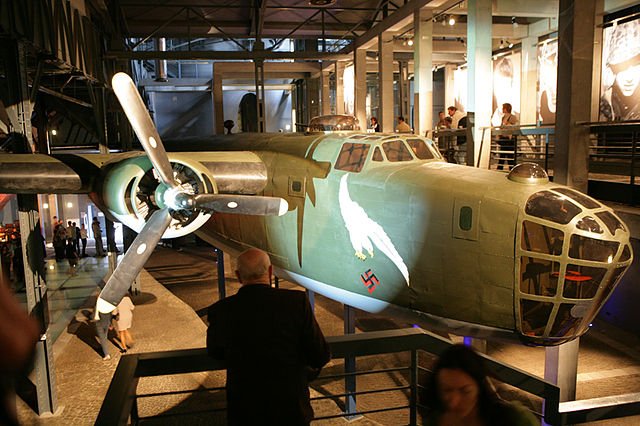Debating ‘agonistic spaces’ and exploring a diversity of museums in Poland
Rabia Malik of Forman Christian College in Lahore, Pakistan, reports from a secondment to the University of Warsaw, Poland.
I’ve spent the past three years seeking to identify antagonistic and cosmopolitan modes of remembrance in the Pakistani educational curriculum, for my MPhil thesis. However, throughout this time I struggled to integrate the agonistic mode of remembrance in my case study. Even when I recommended, as part of my thesis defence, that this mode of remembrance be used for historical events in educational curricula, more specifically in Pakistan Studies textbooks, I could not answer when my my external supervisor asked “how?”.
During my research, I found an abundance of literature on memory studies and museums—which is not to say that there is a lack of research on educational curricula and memory studies: from research on Lebanese textbooks to Turkish and Canadian textbooks, there is a plethora of papers linking the antagonistic mode of remembrance to history textbooks, or emphasizing the need for the cosmopolitan mode of remembrance to be integrated in these textbooks. However, I also developed an interest in understanding the nuances of memory studies and museums during my visit to Poland.
Lahore Museum
Coming from a political and natural sciences background, I did not observe museums keenly or approach them as research subjects - the only museum I have visited in Pakistan is the Lahore Museum. There are, of course, many more museums in Pakistan, but their numbers do not compare to the 900+ museums that are functional in Poland, according to Statistics Poland 2017.
Therefore, my initial aim was to look at the possibilities of the agonistic mode of remembrance in my case study of the Pakistani curriculum, and later on during my visit I explored various museums in Poland.
Possibilities of agonism
The possibilities of the agonistic mode were explored during a DisTerrMem project conference which took place in Warsaw during my visit. The ‘takeaway’ that I took from the conference debates, as well as from relevant case studies, was that we can seek to identify “agonistic spaces” (a term used by colleagues during the conference, hence the quotation marks) within our case studies — but that this task that becomes difficult in conflicts that remain ongoing. In societies like Pakistan, there is also the added challenge that it is difficult to ‘identify’ perpetrators and victims — more so because there is no acknowledgment, for instance, that the subcontinent was a British colony and no historical acknowledgment of the atrocities committed by the colonizer. In other events, notably Partition, both Pakistan and India blame each other for committing atrocities and so there is no clear ‘perpetrator’. In cases like these, it gets very difficult to remember historical events in a dialogical manner.
The Oral History Project - photo courtesy of The Citizens Archive of Pakistan (CAP)
So, it becomes difficult to identify “agonistic spaces”, but perhaps not impossible. I believe that projects such as The Oral History Project in Pakistan, which aims to collect stories from the generation of elders who lived through the partition, and also other projects that focus on preserving alternative voices to official narratives of historical events, could be explored further to see if conflicts within Pakistan or between various groups in Pakistan and India could be remembered via the agonistic mode. Despite the limitations and challenges, the agonistic mode does present an interesting and more holistic way of remembering events.
Exploring Poland’s museums
As soon as I entered the University of Warsaw’s museum, I realized that there was a stark difference between Pakistan and Poland, in terms of the latter’s strong culture of commemoration. I don’t intend to make a generalization here but it was interesting to note a museum section just dedicated to notable graduates of the university. That culture is also evident from the sheer number of museums in Poland, as previously mentioned.
Second World War Museum, Gdansk
During my visit I was able to visit the Second World War museum in Gdansk, POLIN Museum of the History of Polish Jews, the National Museum in Warsaw and the Warsaw Rising Museum. One of the most interesting experiences was my visit to the Warsaw Rising Museum, which is dedicated to the 1944 rising against Germany which lasted for two months and led to the loss of 200,000 people (Kobielska, 2019). My visit coincided with the Warsaw uprising commemorations and so the place was crowded during my visit. The museum reminded me of Lahore’s museum, in which a nationalist tone is evident through the commemoration of sacrifices of the armed forces. One of the more interesting sections in the Warsaw Rising Museum is dedicated to child soldiers during the uprising, with an emphasis on their fighting spirit, evoking nationalist fervour.
Warsaw Rising Museum
Overall, different museums offered different experiences. While the Warsaw Rising Museum celebrated the heroic spirit of war and seemed to deem the tragic loss of human lives as a noble cause, the Second World War museum in Gdansk depicted war as evil and the loss of lives just tragic (Kobielska, 2019). So, it was an interesting to observe and experience alternative and multiple remembrances of historical events through these museums.
In conclusion, my visit to Poland offered an interesting insight into museums, especially ‘new museums’, along with an invigorating debate on memory studies and their integration in different parts of the world, especially regions like Pakistan. Besides these work-related insights, I found Poland to be very scenic, with serene forests and coastlines, unpredictable yet beautiful weather, and a lot of berries!
References
Bull, A. C., & Hansen, H. L. (2016). On agonistic memory. Memory Studies, 9(4), 390-404
Kobielska, M. (2019). Warsaw, 2004–Gdańsk, 2017. Evolution of the Polish museum boom. Difficult Issues, 105.
Rabia Malik is a Research Assistant, currently undertaking an MPhil in Political Science, in Forman Christian College, Lahore, Pakistan.





